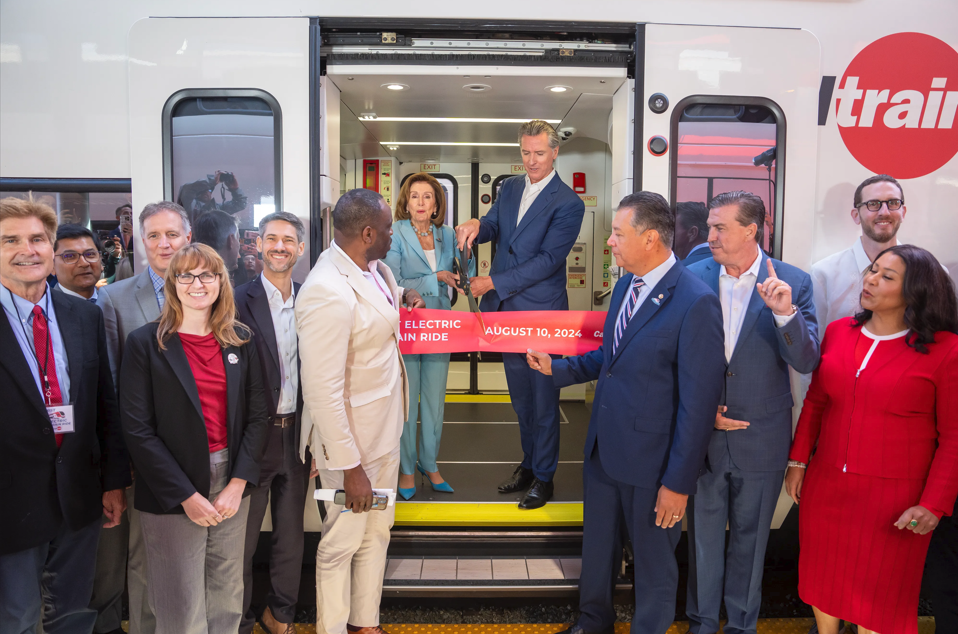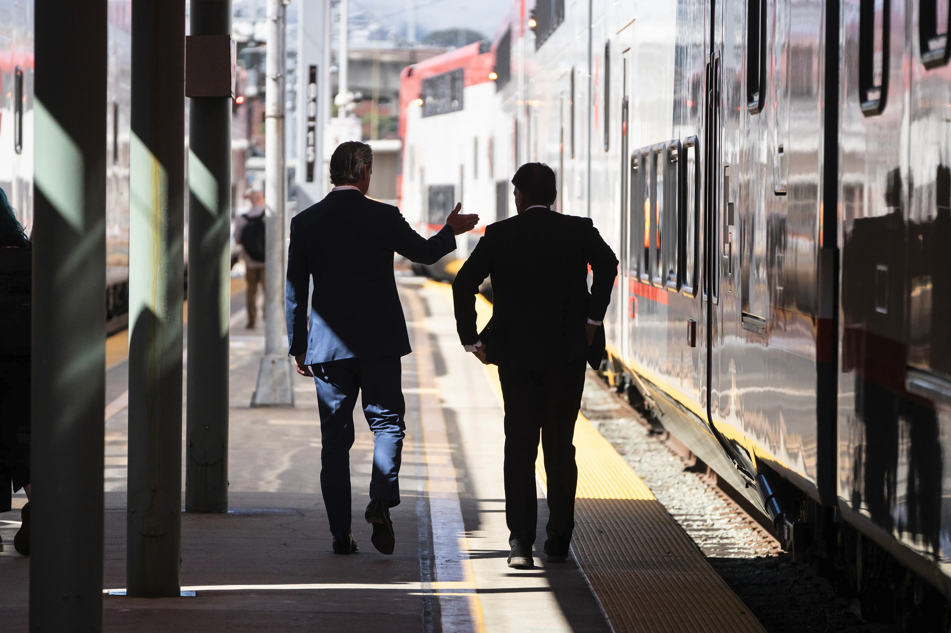Governor Newsom and new High-Speed Rail CEO celebrate Caltrain’s electrification as key part of high-speed rail plan
What you need to know: Caltrain’s newly electrified train fleet received more than $1.3 billion in state funding and is a key component to California high-speed rail.
SAN FRANCISCO – It’s a big week for high-speed rail in California.
On Thursday, the California High-Speed Rail Authority named its new CEO, Ian Choudri – and today, Choudri joined Governor Gavin Newsom in San Francisco to help celebrate the debut of Caltrain’s new electrified train fleet that will transform rail service in the Bay Area and play a key role in California’s high-speed rail system.
The electrification project and electric trains were supported by more than $1.3 billion in state funding, including more than $700 million from high-speed rail, and will serve as the Bay Area’s connection to California high-speed rail. Caltrain’s electrification and high-speed rail are key projects as part of Governor Newsom’s build more, faster infrastructure agenda.
In the last year, high-speed rail has marked significant progress – with historic funding from the Biden-Harris Administration, all environmental reviews from Los Angeles to the Bay Area complete, trainset selection underway, station and track construction on deck, and nearly 14,000 good paying jobs created.
“High-speed rail linked to an electrified Caltrain will not just get Californians where they’re going faster, it’s connecting communities and driving economic growth. The completed Caltrain project is an integral part of high-speed rail and the story California is telling about clean transportation.
And Californians are already seeing the results for themselves as we electrify Caltrain, finish structures, lay track, design and build stations, and buy trains. We’re making rail real in California.”
Governor Gavin Newsom



Governor Newsom celebrates Caltrain’s electrification alongside Speaker Emerita Nancy Pelosi, U.S Senator Alex Padilla (D-Calif.), and other state and local leaders.
“Caltrain’s project is an important piece to the bigger vision of electrified rail throughout California,” said Ian Choudri, incoming CEO of California High-Speed Rail Authority. “I’m proud to join the Governor, state and federal leaders today to mark this important milestone. Let’s keep building on today’s momentum for the future of transportation.”
The Peninsula Corridor Electrification Project converts the Caltrain corridor between San Francisco and San Jose from diesel to an electric service that reduces emissions and enhances capacity. It also equips the corridor to accommodate future California High Speed Rail service. Caltrain estimates that corridor electrification will reduce greenhouse gas emissions by 250,000 tons annually, equivalent to taking 55,000 cars off the roads. After completion:
-
Express trains will operate in under an hour, compared to 65 minutes today.
-
Local trains will operate in 75 minutes, compared to 100 minutes today.
-
16 stations will have service every 15-20 min in peak periods, compared to only 7 today.
-
Every station will have service every 30 min mid-day, evenings and weekends, compared to hourly today.
Construction began in July 2017. Limited passenger service begins tomorrow with full passenger service slated to begin next month.
